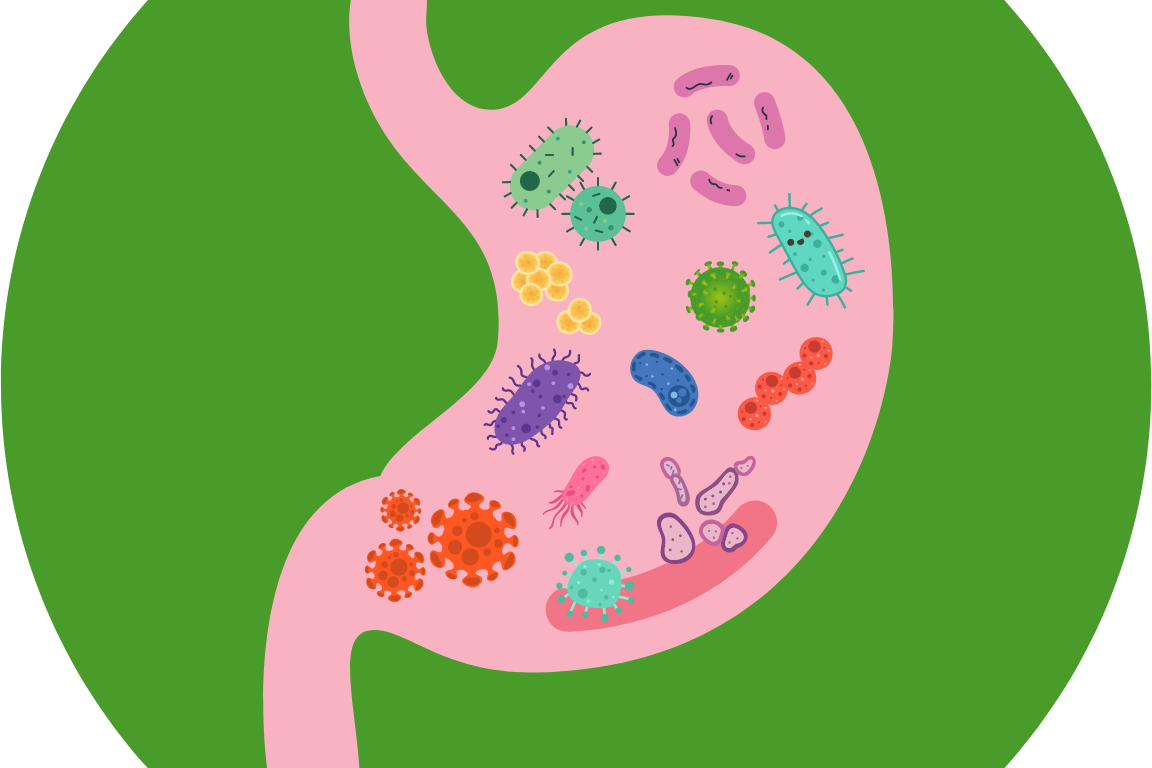The Human Microbiome Project (HMP) published its first results in 2012. There has since been over a decade of research dedicated to understanding the importance of the gut microbiome for human health. In 2010, there were just 1,115 papers published related to the human microbiome. Last year, there were 22,317.
The Gut-[X] Axis
At this point, everyone’s heard of the gut-brain axis—the link between our gut microbiome and our mental health and well-being. As such, diet has become an important therapeutic for improving cognition and treating/preventing anxiety and depression.
But the brain isn’t the only thing the gut affects. New research has illuminated other potential gut-[X] axes, all of which confirm the large extent to which the microbiome determines our overall health.
Gut-Eye Axis
There are proposed mechanisms linking gut microbiota to ocular conditions such as age-related macular degeneration, diabetic retinopathy, and glaucoma.
Probiotics can also improve chronic dry eye.
Gut-Bone Axis
The gut microbiome regulates bone metabolism. Certain bacteria are associated with decreased bone density known as osteoporosis, which affects 1 in 5 women over the age of 50.
Dietary interventions can help rebuild bone density and even reverse osteoporosis.
Gut-Muscle Axis
Skeletal muscle mass is becoming increasingly accepted as a reliable predictor of longevity. Adults with low skeletal muscle mass were found to have significantly decreased microbiota diversity and reduced butyrate.
Another study using mice found dysbiosis of the gut microbiome is associated with blunted muscle growth following hypertrophy.
Gut-Disease Axis
Heart disease, cancer, and Alzheimer’s disease are among the leading killers in the U.S., and the gut microbiome is implicated in each condition.
High abundances of pathogenic bacteria (e.g. E. coli, C. difficile) are common in these diseases.
Improving Health One Microbe at a Time
Given that the gut influences just about every aspect of human health, it’s no secret that healthy individuals have significantly different gut microbiome phenotypes than those fighting disease.
Healthy individuals tend to have:
Highly diverse gut microbiomes
Increased prevalence of health-promoting microbes ( Bifidobacterium, Lactobacillus, etc.)
Lots of short-chain fatty acids (ex: Butyrate)
Gut health could be the key to unlocking greater longevity and health span, a belief shared by founders and investors alike.
The Business of Bacteria
Companies creating drinks, powders, at-home testing kits, personalized nutrition plans, and holistic gut care platforms contribute to a global human microbiome market set to reach $3b by 2029.
Testing/Analysis:
Vitract uses genetic sequencing to identify metabolites contributing to metabolic and mental health issues.
Viome, maker of at-home microbiome testing kits, acquired digital wellness startup Naring Health.
Jona raised $5m for their AI tech which compares a user’s microbiome profile to over 60,000 peer-reviewed papers.
Pre/Probiotics:
AG1’s once-a-day nutrition supplement contains both pre- and probiotic ingredients.
Fitbiomics sells probiotics created based on the microbiomes of elite-level athletes.
Seed Health's offerings extend beyond GI health, developing additional supplements for dermatology, pediatrics, and women’s health.
Personalized Nutrition:
Vivante Health secured $31m to deliver digital gut health via a care team of clinicians, dietitians, and health coaches.
Ayble Health builds personalized plans to eliminate foods triggering gut symptoms.
Salvo Health delivers “whole-person” care, using food as medicine to treat chronic conditions.
“It’s All in Your Gut”
Despite the investments and innovations, we should proceed with caution before asserting that the gut can explain every aspect of human health. Otherwise, we risk adopting the microbial version of neuro-reductionist thinking.
Human experience isn’t defined by the clusters of neurons making up the brain. And health isn’t solely based on the trillions of microbes that call our gut their home.
What it All Means
The Human Microbiome Project revealed that microbes inhabit 4 other “districts” of the body besides the GI tract—including the mouth, skin, and nasal cavity. The oral microbiome in particular has relevance to cardiovascular health and the development of atherosclerosis.
New studies continue linking the microbiome to more aspects of human health. Leaving skeptics in the dust, researchers are now shifting their efforts to proving causation, but investors already seem convinced that the human microbiome is the future of healthcare.
Still, it isn’t the bacteria with which we’ve co-evolved that have the ultimate say when it comes to our health. It’s what goes on in our outside environment that ultimately tips the scale of sickness and health.
This week’s healthcare roundup:




